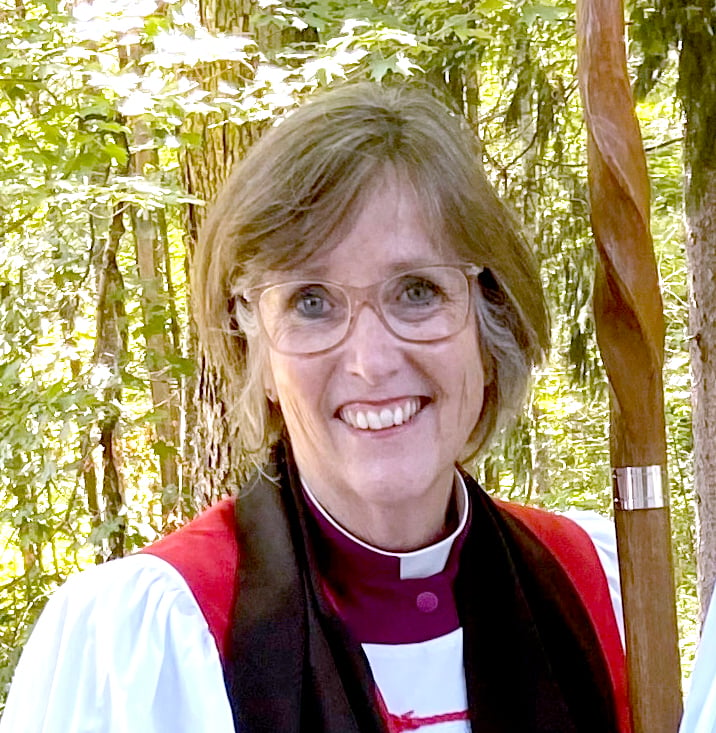All Saints’ Day gives us the opportunity to remember those we have known as saints as well as those known to others or only to God. The word “saints”literally means “holy ones,” and is the title most commonly used for Christians. That’s us!
In St. Augustine’s Prayer Book there’s a beautiful prayer of thanksgiving for life within the church. Each line of the litany gives thanks for one aspect of the church’s life, starting with those who first taught us to pray and opened the gospels to us—those who stood with us at the font where we received the “abundant grace of baptism.”
In my mind’s eye I envision my parents Harold and Nora, my godmother Cynthia and my older sister Helen standing around the font in our church in Johannesburg, South Africa. I imagine their “yes” helping me to grow into the full stature of Christ. (Ephesians 4:13) I imagine them praying as water was poured and a single lit candle was handed to me with the invitation to become a light-bearer for Christ.
But whenever I pray that prayer I add this litany of my own:
“For the saints whose courage in the face of adversity has been an example to us in living a cross-shaped life.”
The person who springs to mind in these moments is one of my faith heroes, the late archbishop of Cape Town, Desmond Tutu. A spiritual and moral giant and one of the greatest bridge-builders of our time, Tutu during the apartheid years in South Africa helped make a pathway to peace.
Tutu was courageous in his efforts to resolve conflict through dialogue instead of violence. He was uncompromising in his conviction that reconciliation was better than retribution, and that we, “this unlikely lot,” in his words, are all called to share in the work of peacemaking. He was a man of many emotions; I’ve seen footage of him laughing uproariously one minute and the next waving his fist in righteous indignation at the apartheid bullies. I’ve seen him weep openly as he listened intently to the heartrending testimony of a traumatized victim of violence at The Truth and Reconciliation Commission.
“The Arch,” as his close friends called him, was a man of deep prayer. The more difficult the day and the more challenging the task, the longer he spent in prayer.
Ultimately Tutu believed in humanity’s extraordinary capacity for good. “Fundamentally,” he said in a 2001 speech, “we are made for love, for compassion, for caring, for sharing, for peace and reconciliation, for transcendence, for the beautiful, for the true and the good.” It is the saints like Tutu we need to look for now more than ever. The writer L.R. Knost wrote that we must seek these bridge-builders and try to walk in their footsteps:
“Look for them in this present darkness. Light your candle with their flame. And then go. Build bridges. Hold hands. Bring light to a dark and desperate world.” This All Saints’ Day, let us give thanks “for the saints whose courage in the face of adversity has been an example to us in living a cross-shaped life.”





